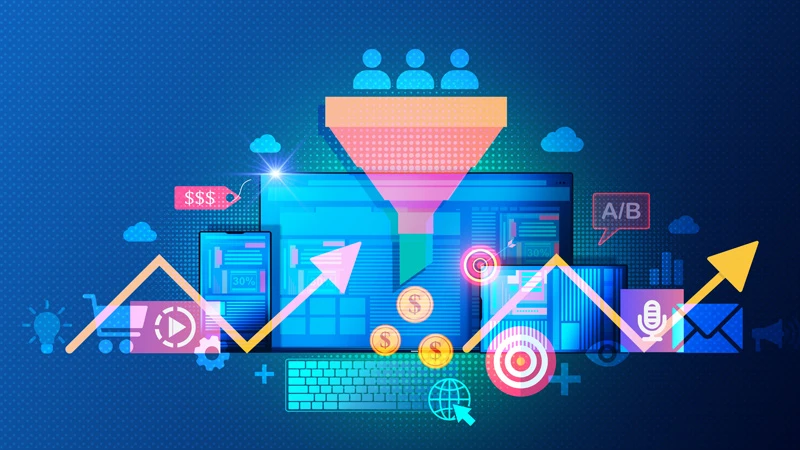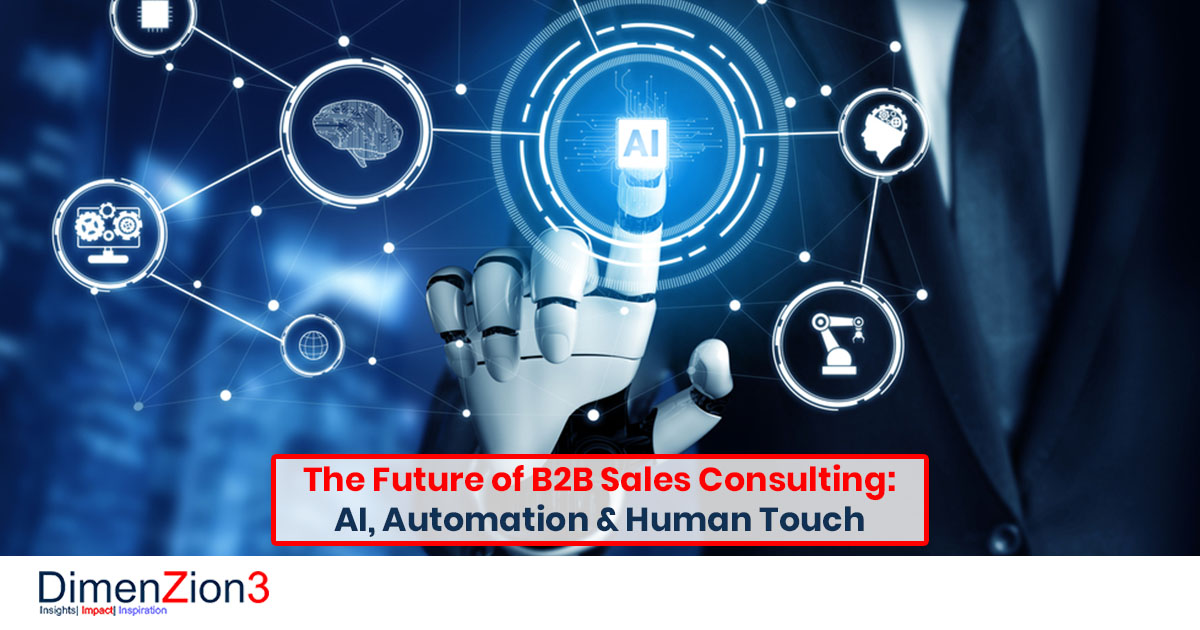How Growth Systems For B2B enhances customer experience in B2B operations
Open Performance and Growth With AI Automation for B2B Business
AI automation is transforming the landscape for B2B business. It minimizes and streamlines operations dependence on human intervention. This change enables companies to make quicker, data-driven decisions. As companies explore which processes to automate, they need to likewise consider the right devices to execute. Nonetheless, difficulties remain in taking on AI innovation. Growth Systems For B2B. The effects of these modifications could form the future of several firms in ways yet to be totally recognized
Comprehending AI Automation in the B2B Context
As businesses increasingly look for efficiency, understanding AI automation in the B2B context ends up being vital. AI automation involves using innovative innovations to streamline procedures, decrease human treatment, and enhance decision-making procedures. In the B2B landscape, this can materialize in various types, such as automating customer support interactions, handling supply chain logistics, or maximizing advertising projects. Companies can utilize AI to analyze huge datasets quickly, enabling them to determine trends and understandings that notify strategic options. AI systems can incorporate effortlessly with existing technologies, supplying a natural system for taking care of service features. This understanding lays the foundation for organizations to explore how AI can change their operations, improve productivity, and inevitably foster lasting development in an open market.
Secret Advantages of Applying AI Automation

Recognizing Processes Appropriate for Automation

Choosing the Right AI Devices for Your Organization
When B2B firms take into consideration automating their processes, picking the ideal AI tools comes to be important for achieving preferred end results. Companies must begin by evaluating their special demands and objectives, making sure placement with organization objectives (AI Automation For B2B). Examining the integration, scalability, and flexibility abilities of potential devices is important, as these variables establish long-term effectiveness. Organizations should also consider user-friendliness and the degree of support provided by suppliers, as these elements can affect successful implementation. On top of that, evaluating consumer reviews and instance researches can give insights into how certain AI solutions perform in real-world situations. By diligently picking AI tools that fit their operational demands, B2B companies can improve efficiency and drive development while decreasing prospective disruptions
Overcoming Difficulties in AI Fostering
B2B companies frequently come across substantial difficulties in taking on AI technologies, particularly problems associated to data top quality and resistance to transform management. Poor information top quality can prevent the effectiveness of AI systems, while employee reluctance to welcome new procedures can delay application efforts - AI Automation For B2B. Attending to these obstacles is essential for effective AI combination and maximizing its potential advantages
Data High Quality Issues
Guaranteeing high information top quality is vital for the successful fostering of AI modern technologies in business-to-business settings. Unreliable, incomplete, or outdated information can significantly hinder AI campaigns, causing erroneous understandings and bad decision-making. Companies usually deal with challenges such as information silos, disparities across various sources, and a lack of standard data layouts. To conquer these concerns, companies must buy data cleaning, integration, and governance procedures. Carrying out robust data monitoring methods assures that the info fed into AI systems is reliable and appropriate. In addition, promoting a society of data high quality awareness among workers can boost data accuracy with time. By resolving information quality worries, B2B firms can release the complete possibility of AI automation, driving efficiency and development.
Change Administration Resistance

Determining the Impact of AI Automation
Measuring the effect of AI automation in B2B companies needs a clear understanding of vital efficiency indicators (KPIs) that straighten with service objectives. Effective information evaluation methods are important for analyzing the outcomes, while durable ROI evaluation methods help establish the monetary advantages of automation efforts. With each other, these elements provide a comprehensive structure for assessing AI's payments to organizational success.
Key Performance Indicators
Key performance indications (KPIs) work as crucial tools for B2B business to analyze the efficiency of AI automation campaigns. By establishing clear metrics, companies can gauge enhancements in operational performance, cost decrease, and earnings growth straight attributable to automation. Usual KPIs include cycle time reduction, mistake prices, customer contentment scores, and worker performance degrees. These indications offer understandings right into how AI systems are optimizing procedures and boosting overall performance. Furthermore, tracking KPIs Minarik AI allows firms to identify areas for additional enhancement and to straighten AI automation efforts with tactical service purposes. Ultimately, a well-defined framework of KPIs assurances that B2B business can quantitatively evaluate the impact of AI automation on their operations and drive constant development.
Information Analysis Techniques
Effective data analysis techniques play a necessary duty in evaluating the impact of AI automation within B2B companies. By using statistical techniques, organizations can identify trends and patterns in functional data, permitting them to assess the efficiency gains achieved through automation. Strategies such as regression analysis and time collection forecasting supply insights into how AI-driven processes influence efficiency and decision-making. Additionally, data visualization devices can properly connect searchings for to stakeholders, assisting in notified tactical decisions. Artificial intelligence formulas can better improve evaluation by forecasting future results based upon historic information, using actionable insights. Inevitably, these methods allow B2B companies to gauge success and enhance their AI automation campaigns, making sure positioning with business objectives and enhancing overall efficiency.
ROI Evaluation Strategies
Reviewing the return on financial investment (ROI) of AI automation is vital for B2B companies looking for to comprehend the financial effects of their technological campaigns. Business can use different ROI analysis strategies to assess the performance of AI executions - AI Automation For B2B. One reliable strategy involves determining price savings by contrasting operational costs before and after automation (Business Process Automation). In addition, determining productivity renovations with essential efficiency signs (KPIs) assists quantify the advantages of AI. Customer satisfaction metrics can additionally offer understandings into the influence of automation on solution high quality. To guarantee a detailed assessment, business must take into consideration both direct intangible benefits and economic returns, such as enhanced decision-making abilities and competitive benefit. This complex examination enables B2B business to make enlightened decisions relating to future financial investments in AI innovation
Future Patterns in AI Automation for B2B Companies
What advancements exist ahead for AI automation in B2B business? Arising fads indicate a substantial change towards improved information analytics capacities, enabling services to make even more informed choices. Anticipating analytics will certainly become increasingly vital, permitting firms to anticipate market changes and client requirements. In addition, the assimilation of AI with Internet of Things (IoT) technology is anticipated to simplify procedures by providing real-time insights and automation of processes. Companies will also concentrate on boosting customer experiences through personalized advertising driven by AI algorithms. Furthermore, improvements in natural language processing will certainly help with better communication between companies and clients. As these patterns develop, B2B companies have to adjust to take advantage of AI automation efficiently, making certain continual growth and affordable benefit.
Regularly Asked Concerns
What Industries Benefit one of the most From AI Automation in B2B?
Production, financing, health care, and logistics industries profit one of the most from AI automation in B2B. These industries take advantage of AI to optimize procedures, improve decision-making, and improve total operational efficiency, driving substantial growth and development.
How Does AI Automation Effect Employee Responsibilities and Responsibilities?
AI automation improves employee roles and duties by streamlining repetitive jobs, making it possible for workers to concentrate on strategic efforts. This change cultivates ability development, boosts productivity, and encourages cooperation, eventually driving business growth and technology.
What Are Typical Misunderstandings Concerning AI Automation in B2B?
Typical mistaken beliefs about AI automation in B2B consist of fears of task loss, ideas that AI can completely change human judgment, and ignoring the value of partnership in between AI systems and workers for excellent results.
How Can Companies Make Sure Data Privacy With AI Automation?
Services can assure information personal privacy with AI automation by executing durable security methods, sticking to regulatory compliance, carrying out routine audits, and training staff members on information taking care of techniques to mitigate threats and protect delicate details.
What Are the Prices Linked With Implementing AI Automation?
The costs connected with applying AI automation include software application purchase, infrastructure upgrades, training personnel, ongoing maintenance, and possible downtime throughout assimilation. In addition, firms might incur expenses related to information protection and conformity procedures.
Determining the effect of AI automation in B2B companies requires a clear understanding of crucial efficiency indicators (KPIs) that straighten with organization purposes. Secret performance indications (KPIs) offer as crucial devices for B2B firms to analyze the efficiency of AI automation efforts. Effective information evaluation methods play a vital role in reviewing the effect of AI automation within B2B companies. Reviewing the return on financial investment (ROI) of AI automation is important for B2B firms looking for to comprehend the financial ramifications of their technological campaigns. What advancements lie in advance for AI automation in B2B companies?